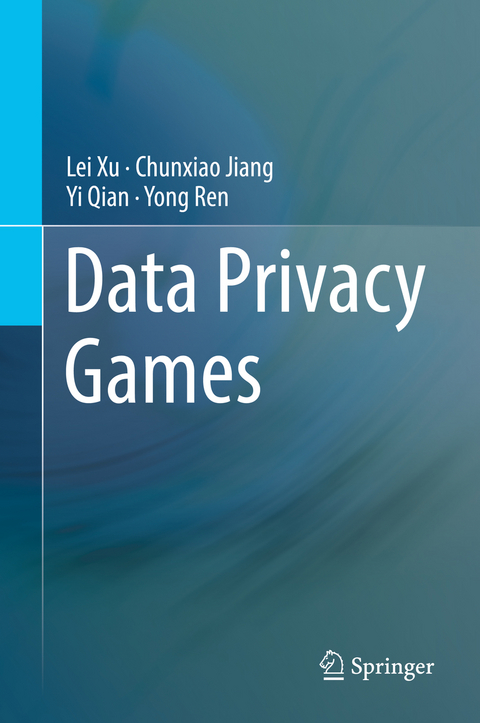
Data Privacy Games
Springer International Publishing (Verlag)
978-3-319-77964-5 (ISBN)
With the growing popularity of "big data", the potential value of personal data has attracted more and more attention. Applications built on personal data can create tremendous social and economic benefits. Meanwhile, they bring serious threats to individual privacy. The extensive collection, analysis and transaction of personal data make it difficult for an individual to keep the privacy safe. People now show more concerns about privacy than ever before. How to make a balance between the exploitation of personal information and the protection of individual privacy has become an urgent issue.
In this book, the authors use methodologies from economics, especially game theory, to investigate solutions to the balance issue. They investigate the strategies of stakeholders involved in the use of personal data, and try to find the equilibrium.
The book proposes a user-role based methodology to investigate the privacy issues in data mining, identifying four different types of users, i.e. four user roles, involved in data mining applications. For each user role, the authors discuss its privacy concerns and the strategies that it can adopt to solve the privacy problems.
The book also proposes a simple game model to analyze the interactions among data provider, data collector and data miner. By solving the equilibria of the proposed game, readers can get useful guidance on how to deal with the trade-off between privacy and data utility. Moreover, to elaborate the analysis on data collector's strategies, the authors propose a contract model and a multi-armed bandit model respectively.
The authors discuss how the owners of data (e.g. an individual or a data miner) deal with the trade-off between privacy and utility in data mining. Specifically, they study users' strategies in collaborative filtering based recommendation system and distributed classification system. They built game models to formulate the interactions among data owners, and propose learning algorithms to find the equilibria.
1 The Conflict between Big Data and Individual Privacy.- 2 Privacy-Preserving Data Collecting: A Simple Game Theoretic Approach.- 3 Contract-based Private Data Collecting.- 4 Dynamic Privacy Pricing.- 5 User Participation Game in Collaborative Filtering.- 6 Privacy-Accuracy Trade-off in Distributed Data Mining.- 7 Conclusion.
| Erscheinungsdatum | 18.05.2018 |
|---|---|
| Zusatzinfo | X, 181 p. 52 illus., 46 illus. in color. |
| Verlagsort | Cham |
| Sprache | englisch |
| Maße | 155 x 235 mm |
| Gewicht | 456 g |
| Themenwelt | Informatik ► Theorie / Studium ► Algorithmen |
| Schlagworte | bandit learning • contract theory • data market • Data Mining • data pricing • differential privacy • Game Theory • location privacy • point-of-interest recommendation • privacy preserving • Reinforcement Learning • satisfaction equilibrium • stochastic game |
| ISBN-10 | 3-319-77964-8 / 3319779648 |
| ISBN-13 | 978-3-319-77964-5 / 9783319779645 |
| Zustand | Neuware |
| Haben Sie eine Frage zum Produkt? |
aus dem Bereich


